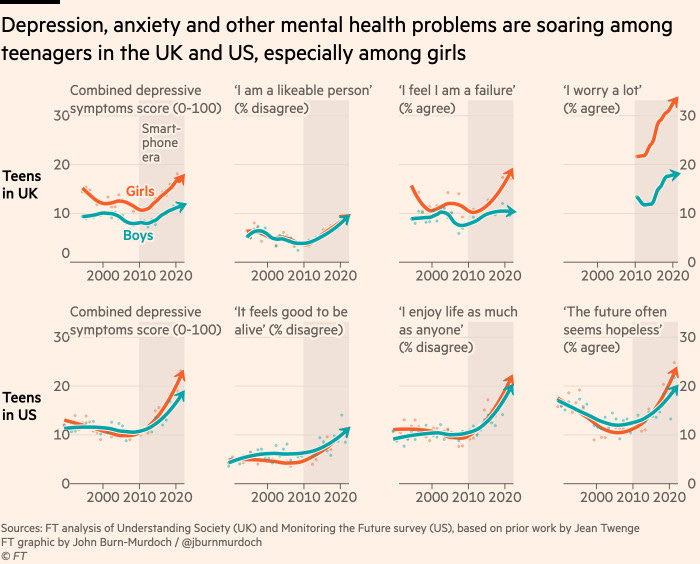Computational Nostalgia
Mourning healthier relationships to personal computing
When I booted up Windows XP for the first time, I was hit with a familiar feeling of stumbling into a space filled with potential. The image that embodies this the most is the Windows XP default background (Bliss). The image captures the innocence of the era of personal computing in which it was conceived. It evokes a quality of empowerment that has long been lost in the current age of consumer technologies.
Coming of age, there was only one computer in my residence. This meant only one person could use it at any time, resulting in shorter sessions for each user. When using dial-up, no one could be on the phone while using it. Those moments away were agonizing, but it also meant that my imagination ran wild as I read books, watched TV, went to school, and played video-games, bidding my time. Anticipation would always be strong, with a battle plan in place for when the session finally came. Once my turn came around, I’d immediately launch onto the websites and forums surrounding my favorite hobbies. Scarcity of access only made the payoff better.
I fondly remember at one point losing access to the computer due to burglary, and looking forward to every visit to the library to use one of their computers. Everything about those library visits only reinforced how the heart of that joy was in how a personal computer was the Stargate that brought me closer to the things that I loved, while connecting me to others that enjoyed it. Scenes would emerge in the form of discussions, fan fiction, fan films, etc. Even though there was an unmanageable list of bookmarks saved, it still felt like I had a greater intimacy with every page. It never felt like the world was the web, simply that it was a source of enrichment (and escape) from the world outside of it.
The very companies that contributed to this exploration are now the ones devouring it. Smartphones have taken the helm of destroying the exploratory bliss, relegating it to nostalgia for those that experienced it, and niche curiosity for those that did not. Gone is the era where the default experience of exploring a computer itself felt like a sacred experience. Now, the experience of interfacing with the internet is met as an unexceptional experience. The default is now taking out a smartphone and using it to distract from the present. An illusion is created that attempts to convince users that they are seeing is the world, not a simple representation of it. When content consumption is driven by pure engagement, the goal of the content provider is to take as much of the user’s time as possible. The model sets the foundation for creating an experience where a user is to live on the platform, in contrast to simply visiting it. Smartphone gamification ensures that even if the device isn’t in hand, a clever notification is ready to nudge the user back to the device. Toddlers have devices placed in front of them, normalizing the experience of using devices solely for the consumption of content. With the death of exploration comes the death of the imagination required to conjure up new and truly empowering possibilities.
In place of that joy are cycles of increasingly extreme hype about innovations designed to be the center of engagement, instead of a complement to everyday experience. Hype is a byproduct of a deeper desire users will always have to find empowerment through the use of technology. That desire has increasingly been co-opted in favor of the attention economy, divorced from what’s best for most consumers. This distortion of incentives encourages the myth-making that is unconcerned with the disasters left behind.
I've had a gripe for sometime with how irresponsible builders can be in assuming most people will gravitate to the reasonable use cases of a product. It’s profitable game theory, and it’s why the generations that are harmed the most are the most far-removed from the positions of influence that tech’s business leaders occupy. With many recent innovations comes an increasing detachment between the user experience and how the device works. What this trains people to do is not to question the modes of consumption given to them. The user's in turn offer less feedback as to how things can be done better. It gives the hype drivers more power, to a point of ensuring that useless technologies such as cryptocurrency never die in the public imagination.
Where do we go from here?
With the low-hanging fruit of attention increasingly monetized, it requires an individualist approach to rise above the noise. The choices are:
Luddism
Mitigation
Submission
I’m an advocate for option two. Sticking my head in the sand would be easier, but it leads to having less adaptability to the way in which the culture shifts due to popular habits. It’s still of value to anticipate change. Rising tides in political populism are much easier to explain when the propaganda can move more quickly than facts. I’ve come to realize that empowerment as a theme is what stood out the most in those early years of computational bliss. Like nostalgia, it’s never the specifics, but the big picture. When information is easier to access, it’s also easier to make. It will take a great collective sigh for the needed exhaustion to arise for widespread mitigation. There are promising signs of this with the rise of smartphone bans in school. Our current usage —when accepted without question — is a brain rot incubator. Without the intentional introduction of friction to content consumption, screen time will disempower us all.





